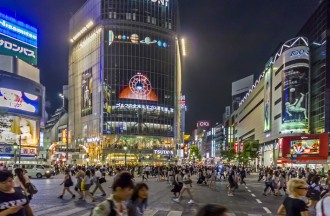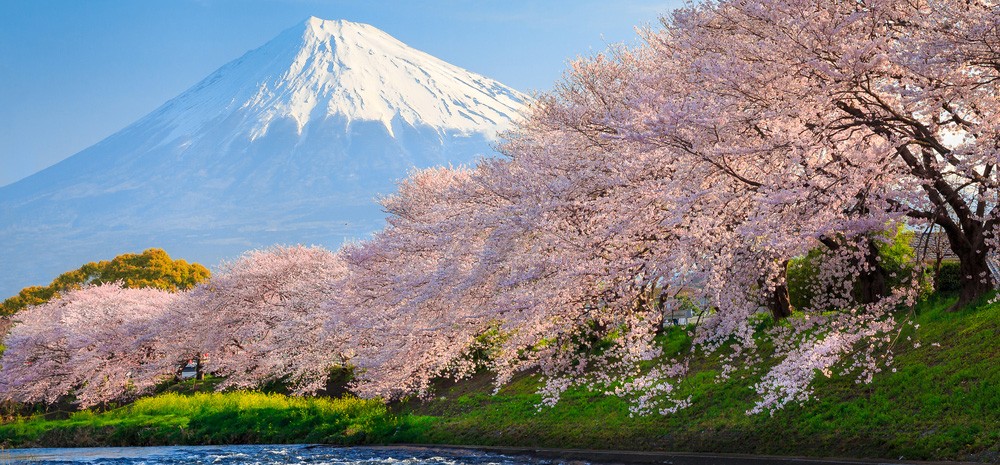TOP > Browse by City > Japan >
Live in Japan
Great things about living in Japan
- Japan is a very efficient country in many ways, such as it’s an extensive public transportation system, which is always very clean, reliable, safe, and virtually always runs exactly on time. Ubiquitous convenience stores offer a lifeline for Japanese residents, each one is only about 100-200 square meters but carries over 2,500 different products. They are also equipped with an ATM machine, photocopier, and self-service ticket-master kiosk. It is literally a combination of bank, supermarket, and DIY store.
- Japan offers amazing culinary experiences, and not just Japanese food either. The Italian, French, Chinese, and many other cuisines are superb. A Tokyo-based Italian once said, “Aside from Italy, Japan is the only country where I can taste authentic Italian food.”
- Japan’s beautiful changing seasons each showcase a different aspect of the natural beauty of Japan. Spring is Japan’s famous cherry blossom season, summer skies are lit up with fireworks festivals, fall is spiced with yellow and red autumn leaves, and winter gives you the chance to winter sports on some of Japan’s countless snowcapped mountains.
Things you should know when moving to Japan
- An 8% consumption tax applies to all the purchases, like a sales tax.
- Japan has no culture of tipping at restaurants, hotels, or taxis, etc. Also, as a general rule of thumb, restaurants do not have service charges, except for some high-class restaurants and bars/restaurants operating late at night.
- While there is a huge influx of non-Japanese tourists these days, on the whole, Japan is very homogeneous and it is essential to acquire some Japanese language ability to get through day-to-day basis activities, such as shopping and dining out.
- The legal drinking and smoking age is 20 years old, and the driving is 18. Though, Japan has very relaxed attitude toward drinking so you will never get asked to show your ID unless you go to certain places or you look like a middle school student.
- As you already know, Japanese bow when they greet each other. However, a Japanese bow is done with your hands at your sides, not with your hands clasped together like you are praying.
- Japanese are very considerate and tend to put other people’s benefits first, instead of thinking of themselves, in other words, people are very nice in general.
- However, because they care about other people’s feeling so much, Japanese people tend not say or show what they are really thinking or feeling. They tend to pretend they are happy about pretty much anything, even when sometimes they actually are not.
- Everything is super clean and organized in Japan. Even restrooms in shopping malls are so clean that you feel like you can eat lunch or take nap there.
- Things are punctual in Japan. Get used to it.
- It is absolutely NOT ok, to burp, fart, spit, pee or poo in public. Even small children are not allowed to do things like this.
- When you eat, keep your mouth shut and do not make noisy eating sounds. However, when you eat noodles such as ramen, it is ok to make a slurping noise. You are not supposed to talk when there is food in your mouth, either.
- Japan is full of elderly people. About 25% of the population is over 65 years old.
- Japanese say “sorry” all the time when they don’t need to. It is part of the Japanese culture of politeness and thinking of others.
- Japanese love anime and manga in general, even if they are not otaku (nerds).
- Girls drink alcohol and smoke cigarettes just as much as boys do.
Visa (as of January 2015)
Non-Japanese citizens need a visa to work or stay long-term (more than 90 days) in Japan.
1. Student Visas
Countries with a visa-waiver agreement with Japan do not need a student visa in order to attend language courses that last less than three months. In that case, you can visit with a tourist visa.
For Chinese nationals, if certain requirements are met, visas can be issued for “individual tourists.”
The traveler creates a travel schedule in advance, and then asks an accredited travel agency in China to make the arrangements for the travel. The travel agency in China applies for the visa based on documents submitted by the person traveling and a travel agency in Japan. The applicant his/herself is not required to make the application.
If you are studying more than three months, you will need a student visa.
2. Investor’s visa
While there is no visa available that enables you to stay solely as an investor, the closest visa category to that is the Invest/Business Operation visa, which requires a legitimate business address, business activities, and employment of Japanese permanent residents.
For more information:
http://www.mofa.go.jp/j_info/visit/visa/long/index.html
3. Working Visa
You will need a working visa if you want to do any paid activity.
There are many categories of working visas such as Journalist, Researcher, Engineer, etc.
Employment visas are difficult to acquire without a sponsoring company in Japan.
Social Welfare
Health care
Legal residents must enroll in a mandatory health care system. Your monthly insurance fee is based on your annual income. For each doctor visit or medical cost you incur, you will have to pay 30% of the total out of your own pocket. Annual health check-ups, vaccinations, some OB/GYN services, cosmetic surgery, and other non-essential treatments will require you to pay the full 100% of the medical cost.
Pension
The Japanese pension system is mainly composed of national pension insurance (kokumin nenkin) and employees’ pension insurance (kosei nenkin). All residents of Japan who are between 20 and 60 years of age, including foreign residents, are required to enroll in the national pension plan.
The national pension system aims to provide a common “basic pension” to all residents in Japan. There are three types of basic pension: basic pension for the disabled, basic pension for the bereaved, and basic pension for the elderly.
The basic pension for the disabled is paid under certain conditions when a pensioner becomes disabled due to illness or injury. The basic pension for the bereaved is paid to a pensioner’s wife and child(ren) under certain conditions when a pensioner dies. The basic pension for the elderly is payable in principal to a pensioner at the age of 65.
You can receive the Old-Age Basic Pension at the age of 65 if you have been covered under the National Pension and Employees’ Pension Insurance systems. To be qualified, your total coverage period need to be 25 years or more.
The following information explains more about the basic pension for the elderly:
You can receive the Old-age Basic Pension at the age of 65 if you have been covered under the National Pension and Employees’ Pension Insurance systems. To be qualified, your total coverage periods need to be 25 years or more.
The following information explains more about the basic pension for the elderly:
- If you pay premiums for at least 25 years, you will receive the pension payment whether or not you live in Japan at the age of 65 (the payment is sent to your place of residence).
- You need to make a claim to start receiving pension payments after you turn 65 years of age. Submit a claim form called “kokumin nenkin kosei nennkin hoken rorei kyufu saitei seikyusho” (claim for determination of eligibility for old-age pension payment under national pension and employees’ pension insurances) to a local pension office to confirm your eligibility.
- A non-Japanese national who lived in Japan and paid the national pension premiums may be eligible to receive a lump-sum withdrawal payment (dattai ichijikin) if he/she permanently leaves Japan and meets the required conditions.
Employees’ pension is mainly for those who are employed by private business corporations. Contributors to the employees’ pension are entitled to future pension payments and also to the use of various welfare facilities.
Like the national pension, non-Japanese nationals who are enrolled in the employees’ pension for a certain period of time are eligible for the lump-sum withdrawal payment when they permanently leave Japan.
Work in Japan
Non-Japanese citizens without permanent resident status must obtain a visa that will allow them to work in Japan for a fixed amount of time, with visa renewals available to extend the time period.

Live in Tokyo
Photo: Greir / Shutterstock.com Great things about living in Tokyo Things you should know when movi...

Live in Osaka
Photo: Copycat37 / Shutterstock.com Great things about living in Osaka Things you should kn...
More

